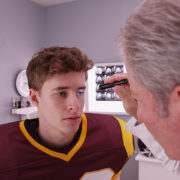Does My Child Need Ritalin for ADHD?
Does My Child Need Ritalin for ADHD?

Especially for young students with behavioral or academic problems, stimulant medications are thought of as a one-size-fits-all “easy fix.” A parent might be tempted to pursue this route out of legitimate concern for a child and the conception that a pill can be the miracle cure.
But not so fast!
At Pathways, we recommend a comprehensive ADHD evaluation and counseling before starting stimulant medications. Why? First, the presence behavior and academic problems may not necessarily mean one has ADHD. ADHD is a specific developmental disorder relating to executive functions sn emotional control. Depending on the case, stimulant medications may have no positive benefit or, worse, lead to adverse responses. Second, medication is only one piece of the ADHD puzzle. Behavioral counseling and management is an important component of comprehensive ADHD treatment.
Last year, the Journal of Clinical Child & Adolescent Psychology published a paper indicating that stimulant medication is more effective as a supplemental treatment complementing behavioral counseling and management in children ages five to twelve. The results of the studies challenge the extreme reliance on stimulant medications at high doses. When parents were counseled to practice behavioral modification before the start of Ritalin treatment, children displayed more positive results in behavior at school compared to children receiving Ritalin alone. Behavior modifications are based primarily on a reward system and positive feedback. Under this parenting technique, children are rewarded for positive behavior and are taught to delay immediate gratification to get certain tasks complete.
In addition to seeing greater results in school, combination therapy that incorporates counseling and medication turned out to be more cost-saving than treatment and monitoring alone. This may be because treatment is more efficient when tailored to patients’ needs and responsibilities are also slowly taken up by the parents.
The Pathways team of professionals has helped thousands of people with ADHD & brain injuries. We are Dedicated to effective and compassionate care for individuals with neurological challenges.
The post Does My Child Need Ritalin for ADHD? appeared first on Pathways Neuropsychology Associates.
Source: Pathways Neuropsychology
Does My Child Need Ritalin for ADHD?

















 March is
March is